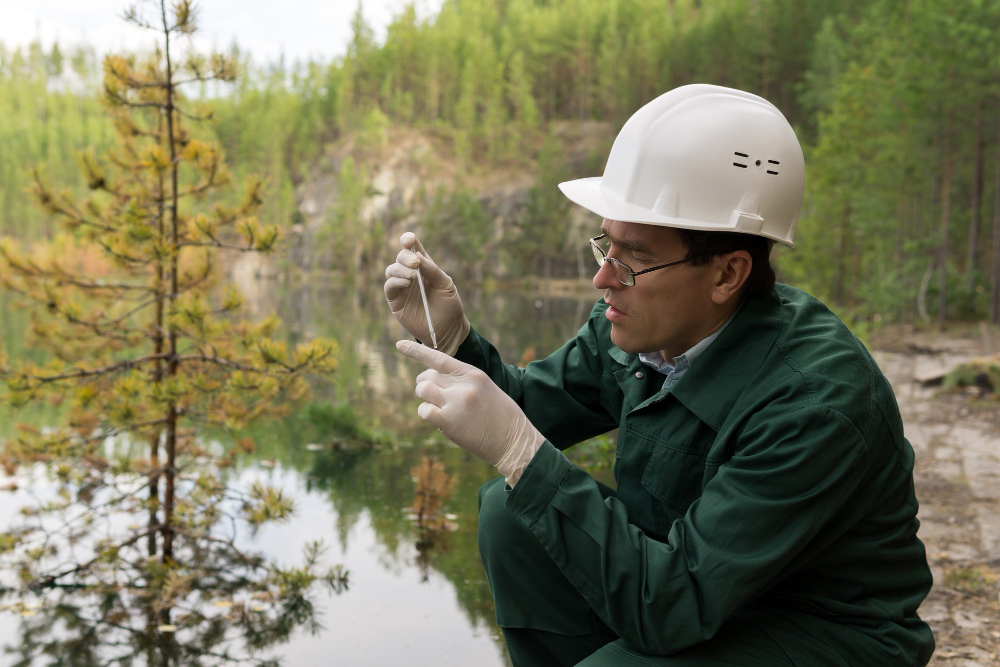Trending

Environmental Science Degree Course Guide
Ratings
(0)
If you care about the planet, want to understand how natural systems work, and are interested in solving challenges like climate change,
pollution, biodiversity loss and sustainable resource use, then Environmental Science could be the ideal subject for you. It’s a broad, interdisciplinary degree that combines elements of biology, chemistry, geography, geology and social science to explore how the environment functions and how human activity affects it.
Environmental Science is perfect for students who enjoy both science and the outdoors, who are curious about how the Earth works, and who want to make a difference in tackling real-world environmental issues.
What Is Environmental Science Like at University?
At university, Environmental Science gives you a scientific understanding of the Earth’s systems, from the atmosphere and oceans to soils, ecosystems and human impacts. You’ll study topics across several scientific disciplines and gain practical skills in fieldwork, lab work and data analysis. It’s a great subject if you enjoy variety and want a degree that balances theory with hands-on investigation.
Many courses include field trips, environmental sampling, mapping and the use of specialist software. You’ll also learn about sustainability, environmental policy, land use and conservation strategies. Some universities offer the option to specialise in areas like climate science, marine environments, ecology or environmental management as you progress through the course.
What Will You Study?
Environmental Science is multidisciplinary, so you’ll take a mix of modules from physical, life and earth sciences. The exact content will vary by university, but most degrees include:
Earth Systems and Geology
You’ll learn about the structure of the Earth, plate tectonics, soils, rocks, natural hazards and geochemical cycles. This helps you understand how landforms develop and how natural processes shape our world.
Climate and Atmosphere
This includes studying weather systems, global climate patterns, greenhouse gases, and the science behind climate change. You may also look at modelling and predicting future environmental conditions.
Ecology and Biodiversity
You’ll explore ecosystems, species interactions, conservation and biodiversity management. This often involves field studies and ecological surveys of plant, animal and microbial communities.
Environmental Chemistry
You’ll study pollutants, toxicology, water and soil quality, and how to analyse samples in the lab. This is especially important for careers in environmental monitoring and clean-up.
Hydrology and Oceanography
Understanding water systems is crucial. You’ll look at rivers, lakes, groundwater, oceans and the role of water in the global climate and biosphere.
Sustainability and Human Impact
You’ll examine topics such as land use, deforestation, renewable energy, waste management and sustainable development. Many courses also cover environmental law, ethics and policy.
Data and Research Methods
You’ll learn how to collect and interpret environmental data, use GIS (Geographic Information Systems), design research projects and present your findings effectively.
In your final year, you’ll usually complete an independent research project, which may involve fieldwork, lab work, data analysis or working with an external organisation.
How Long Does It Take and What Are the Options?
In England, Wales and Northern Ireland, Environmental Science degrees typically last three years for a BSc or four years if you take a year in industry or study abroad. In Scotland, the degree usually lasts four years. Some universities offer an integrated master’s degree (MSci) lasting four or five years.
You can sometimes choose to focus more on either the natural sciences or social science and policy aspects, depending on your interests and career goals.
How Will You Be Taught and Assessed?
You’ll learn through a mix of lectures, seminars, lab classes, field trips and group work. Fieldwork is a major part of most Environmental Science degrees and might include residential trips in the UK or overseas. Assessment usually involves coursework, written exams, practical assignments, lab and field reports, presentations and a dissertation in the final year.
What A Levels or Subjects Do You Need?
Entry requirements vary by university, but most courses prefer science-based subjects. The most useful A levels are:
Biology – helpful for ecology and environmental biology
Geography – particularly for physical geography and sustainability topics
Chemistry – especially useful for environmental chemistry and lab-based work
Mathematics – important for data handling and modelling
Physics or Environmental Science – helpful for Earth systems and energy topics
You don’t always need all four, but having at least two sciences or science-related subjects is often expected.
What Skills Will You Develop?
Environmental Science students develop a wide range of scientific, analytical and practical skills. These include:
Fieldwork and laboratory techniques
Data collection, statistical analysis and GIS mapping
Critical thinking and problem solving
Report writing and scientific communication
Environmental monitoring and modelling
Teamwork and project management
These skills are highly transferable and relevant to many industries and careers.
What Can You Do With an Environmental Science Degree?
Graduates go on to work in a wide range of roles across the public, private and non-profit sectors. Some common career paths include:
Environmental consultancy
Conservation and wildlife management
Pollution control and waste management
Climate policy and sustainability advising
Environmental education and communication
Water, energy or transport planning
Environmental monitoring and regulation
Research or postgraduate study in environmental science, ecology or sustainability
Some students also move into related fields such as urban planning, international development, science journalism, or corporate sustainability roles in business.
Can You Study Environmental Science Abroad?
Yes. In the US, Environmental Science is a popular major in science-focused universities and liberal arts colleges. In Canada, many degrees include co-op options for paid work placements. In Europe, countries like the Netherlands, Sweden and Germany offer English-taught environmental degrees that focus on global and regional sustainability. In Australia and New Zealand, students benefit from unique ecosystems and a strong focus on marine and climate science.
Is Environmental Science the Right Course for You?
If you’re passionate about nature and sustainability, enjoy both science and fieldwork, and want to understand and help solve environmental challenges, this degree could be a great fit. It’s ideal for students who are curious, observant, proactive and committed to protecting the planet for future generations.




